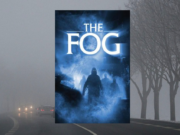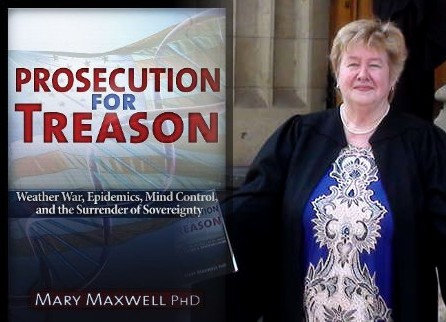 By Mary W Maxwell, PhD (Politics), LLB
By Mary W Maxwell, PhD (Politics), LLB
What’s the drill on sedition these days? The definition of “sedition” in the American Heritage Dictionary is “Acts that incite rebellion or civil disorder against an established government.”
I am writing this in reply to two hard-hitting articles by Dalia Mae Lachlan at Gumshoenews.com, entitled “Austyranny, the New Australia,” and “Teetering Towards Totalitarianism.” She suggests that the new sedition laws in Australia, which criminalize some of our free speech, will lead to the shut-down of honest journalism. Lachlan says she lived in South Africa under the Botha government and can smell this sort of thing. (Well you would, wouldn’t you.)
Canberra has couched the new laws in terms of the terrorist issue. Indeed, the legislation was passed hard on the heels of a reported beheading of a Pommie by – who else – Islamic extremists. As was the case when the US Congress passed The Patriot Act shortly after 9-11, there was little or no discussion about our proud history of limiting the power of government to control the citizen’s speech or thought.
Back in 2002, the Commonwealth passed a “Security Legislation Amendment.” According to Parliament’s website, this was a response to UN Security Council Resolution 1373 which obliged member states to provide laws against aiding terrorists, such as by financial means.
Then, in 2005, Attorney General Philip Ruddock declared that we needed better laws because of the London bombings (Ahem). By December, his Anti-Terrorism law was passed, with Labor and Liberal agreeing and the Dems and Greens opposing.
This 2005 legislation repeated a definition of sedition from the Federal Crimes Act (1914), which had said that we are not allowed to “urge disaffection” against the sovereign, the Constitution, or “either House of Parliament.” (Wait a minute, didn’t Paul Keating, when he was an MP, call his colleagues scumbags?) Penalty is up to seven years in prison.
The 2005 law also enables Control Orders (say, to put you under house arrest, or confiscate your passport). These are diagnostic of a totalitarian government. They imply a death of the rule of law, since they say there is a higher authority than law.
It is pleasing to note that the Australian Law Reform Commission, which is a federal body, was tasked with making critical recommendations about the 2005 law, and it made 32 of them. Almost all were accepted by the government in 2006! ALRC president David Weisbrot said:
“[Our] Report recognised that free speech and robust political debate are the cornerstones of our democratic society…. The basic thrust of our recommendations was to create a bright line in the law between free speech — however robust, confronting or unpopular — and conduct calculated to incite violence in the community, which properly should be regarded as criminal activity. The law also has to be clear enough to ensure that media commentators, satirists, artists and activists are not only safe from criminal prosecution, but also from the ‘chilling effect’ of uncertainty.”
Well, there you go. A law professor (Weisbrot) can restore all balance. But now it is 2014. The man in the Attorney General seat is Liberal Senator George Brandis. No Tom Paine, he. Hence, journalist Lachlan felt (or smelled) the chilling effect straightaway when Brandis said:
“Covert operations may expose intelligence personnel or sources to legal liability in the course of their work. For this reason, some significant covert operations do not commence or are ceased [as well they should be, no?]. To address this issue, the Bill implements the recommendation to create a limited immunity for participants in authorised, covert operations….”
Crikey! That introduces not a slippery slope but something more like an Alpine giant slalom. If a covert operator (and pardonez moi, but how do we know he works for Oz if he is “covert”?) can’t get into trouble for what he does to you, you don’t want to be in his clutches. The way “sedition” sneaks back in is that one of the things a journalist mustn’t do is keep tabs on, say, ASIO. “Do not report any naughtiness.” Hush.
A word about the existence of Commonwealth criminal law: The Australian Constitution does not give the federal government power to legislate against crime other than for offences against federal law. The states make criminal law. (New South Wales, South Australia, and Victoria rely on common law. The other three states and the territories have a codified criminal law.) If Oz starts to imitate the US, there will soon be more federal police nosing into local affairs. That’s equally unconstitutional in Seppo Land, but when you have Muslims beheading Mom and Pop, there is no limit to the surrender of local power to national power, right?
In 1798, Congress passed a sedition law that any schoolgirl could see was an effrontery to the Bill of Rights. The folks of Kentucky and Virginia were ropable, God love ’em, and passed resolutions rejecting it. Kentucky enumerated the few crimes that were under the jurisdiction of the US (e.g., counterfeiting and piracy). Virginia employed the following quaint terms to criticize the federal usurpation of state powers:
“In case of a deliberate, palpable, and dangerous exercise of [unconstitutional powers], the states … have the right, and are in duty bound, to interpose, for arresting the progress of the evil, and for maintaining, within their respective limits, the authorities, rights and liberties, appertaining to them.”
Fine. We could use some arresting of the progress of evil. We’ve got appurtenances. How about arresting persons who say that Muslim extremists did such-and-such when it was all done in quiet boardrooms? How about checking out Ruddock’s and Brandis’s claims that we need laws to prevent Australians from helping terrorists. (Hello?)
I love it when Dalia Mae Lachlan says the members of ASIO with all their experience must be aware of what really took place on 9-11. If they do know, isn’t all this hoopla about anti-terrorism law treasonous? Or murderous? Or something?
When three Indonesian men were executed in 2008 for the Bali bombings (their poor wives!) I wondered: If they had the inclination and skill to do that, why didn’t they engage in similar things earlier in life? (I’m doing things in my 60s that were predictable when I was 20.) Just now I went to the Internet to revisit the Bali tragedy and found an Age article from 2002. Maybe I’m paranoid but it all sounds a bit peculiar to me:
‘BIN LADEN’ VOICES NEW THREAT TO AUSTRALIA by Tony Parkinson, National Editor Nov 14, 2002
The Bali bombings were in direct retaliation for support of the United States’ war on terror and Australia’s role in the liberation of East Timor, according to a taped message attributed to terrorist chief Osama bin Laden.
“Australia was warned about its participation in Afghanistan, and its ignoble contribution to the separation of East Timor,” [???] the tape says. “But it ignored this warning until it was awakened by the echoes of explosions in Bali.” If authenticated, the tape represents the first substantive evidence that bin Laden survived [the 2001] US-led military campaign in Afghanistan to crush the Islamic terror cells blamed for the September 11 attacks.
Although some senior US officials had concluded that bin Laden was dead, the emergence of the tape adds weight to the theory that he escaped. The tape singles out Australia as a close ally of Washington…. “You will be killed just as you kill, and will be bombed just as you bomb,” it says. “Expect more that will further distress you.”… Australia’s security agencies are running their own analysis. But Foreign Minister Alexander Downer said that even if the tape was verified as genuine, the Howard Government would not be blackmailed.
— end of Age article.
So was the tape ever verified as genuine? If it wasn’t genuine, who dunnit? Who thought up the bit about East Timor?
Mary W Maxwell is a graduate of Adelaide Law School. She has been called “half Seppo, half dingo.” You may enjoy her 2011 book, Prosecution for Treason.































[…] article at hand is a continuation of my October 5, 2014 article in Gumshoenews.com, entitled “Sedition Laws in Australia and a Retrospective on the Bali Bombings.” I had only last week discovered a 2002 article by Age editor Tony Parkinson, in which it was […]
[…] protect government criminality – and jail those exposing it. (And see Mary Maxwell’s article on sedition laws in Australia) black […]